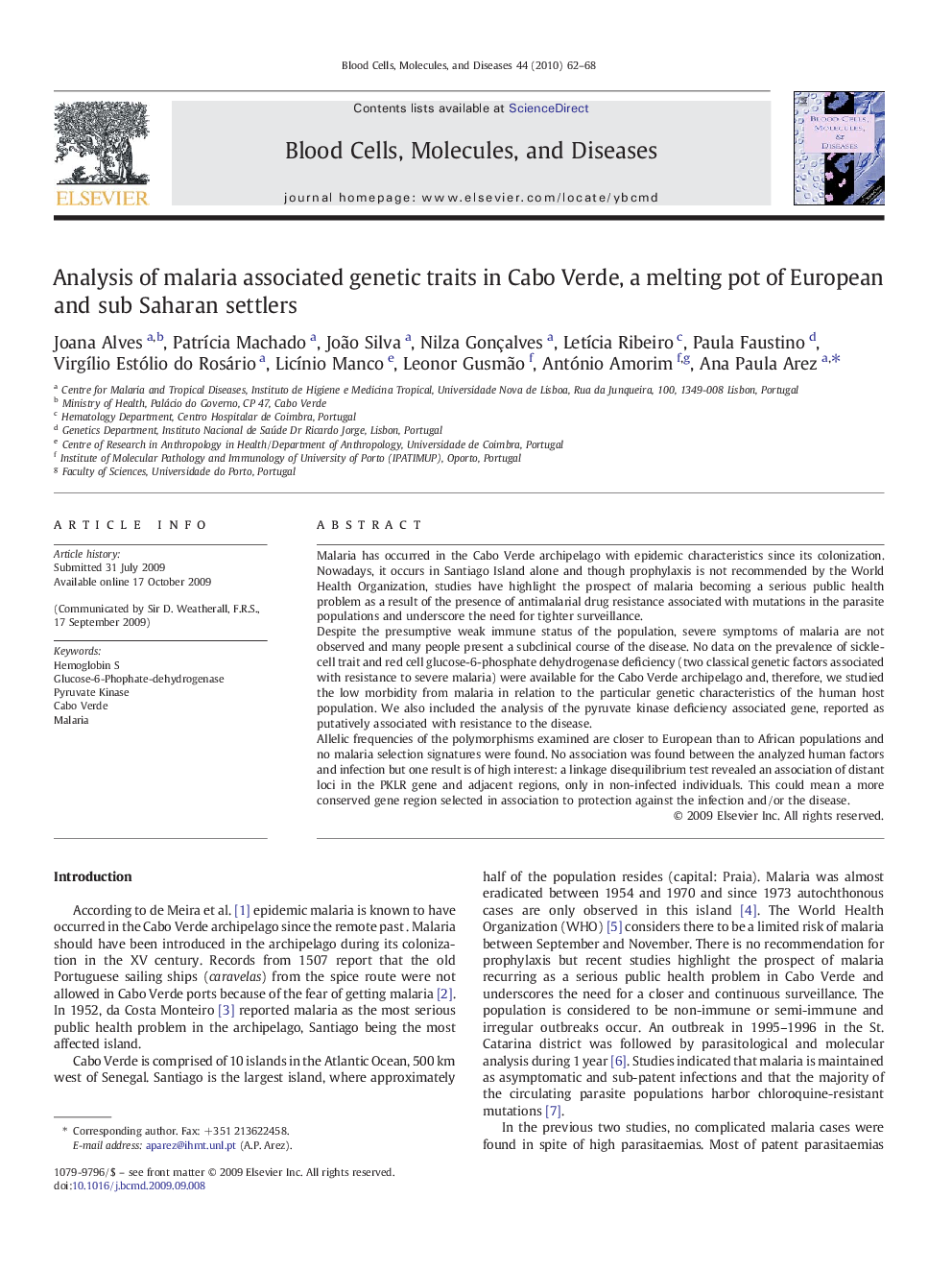| Article ID | Journal | Published Year | Pages | File Type |
|---|---|---|---|---|
| 2827601 | Blood Cells, Molecules, and Diseases | 2010 | 7 Pages |
Malaria has occurred in the Cabo Verde archipelago with epidemic characteristics since its colonization. Nowadays, it occurs in Santiago Island alone and though prophylaxis is not recommended by the World Health Organization, studies have highlight the prospect of malaria becoming a serious public health problem as a result of the presence of antimalarial drug resistance associated with mutations in the parasite populations and underscore the need for tighter surveillance.Despite the presumptive weak immune status of the population, severe symptoms of malaria are not observed and many people present a subclinical course of the disease. No data on the prevalence of sickle-cell trait and red cell glucose-6-phosphate dehydrogenase deficiency (two classical genetic factors associated with resistance to severe malaria) were available for the Cabo Verde archipelago and, therefore, we studied the low morbidity from malaria in relation to the particular genetic characteristics of the human host population. We also included the analysis of the pyruvate kinase deficiency associated gene, reported as putatively associated with resistance to the disease.Allelic frequencies of the polymorphisms examined are closer to European than to African populations and no malaria selection signatures were found. No association was found between the analyzed human factors and infection but one result is of high interest: a linkage disequilibrium test revealed an association of distant loci in the PKLR gene and adjacent regions, only in non-infected individuals. This could mean a more conserved gene region selected in association to protection against the infection and/or the disease.
